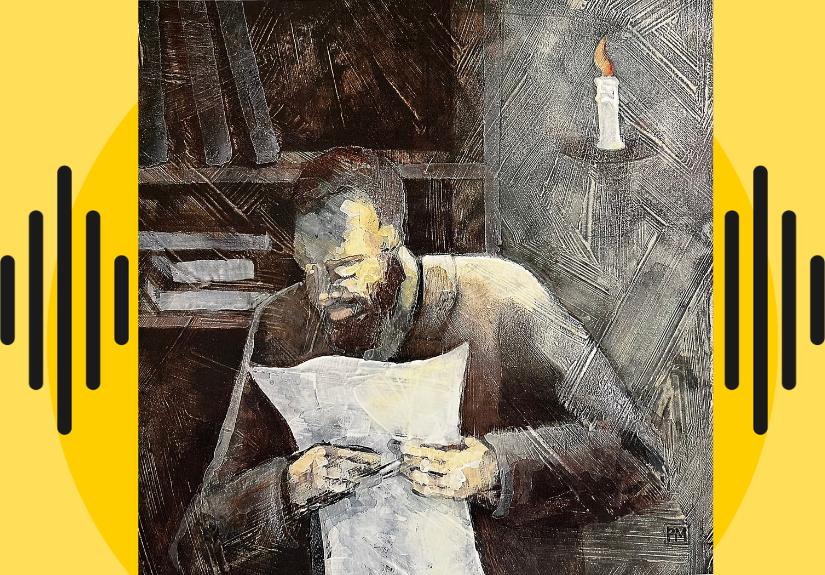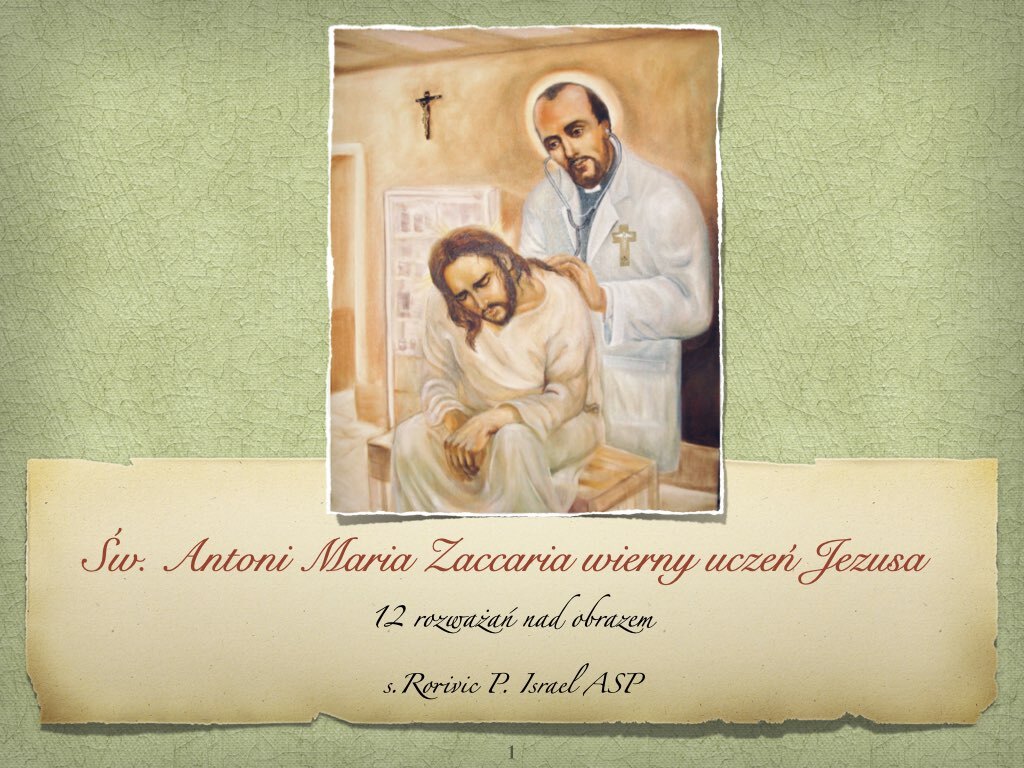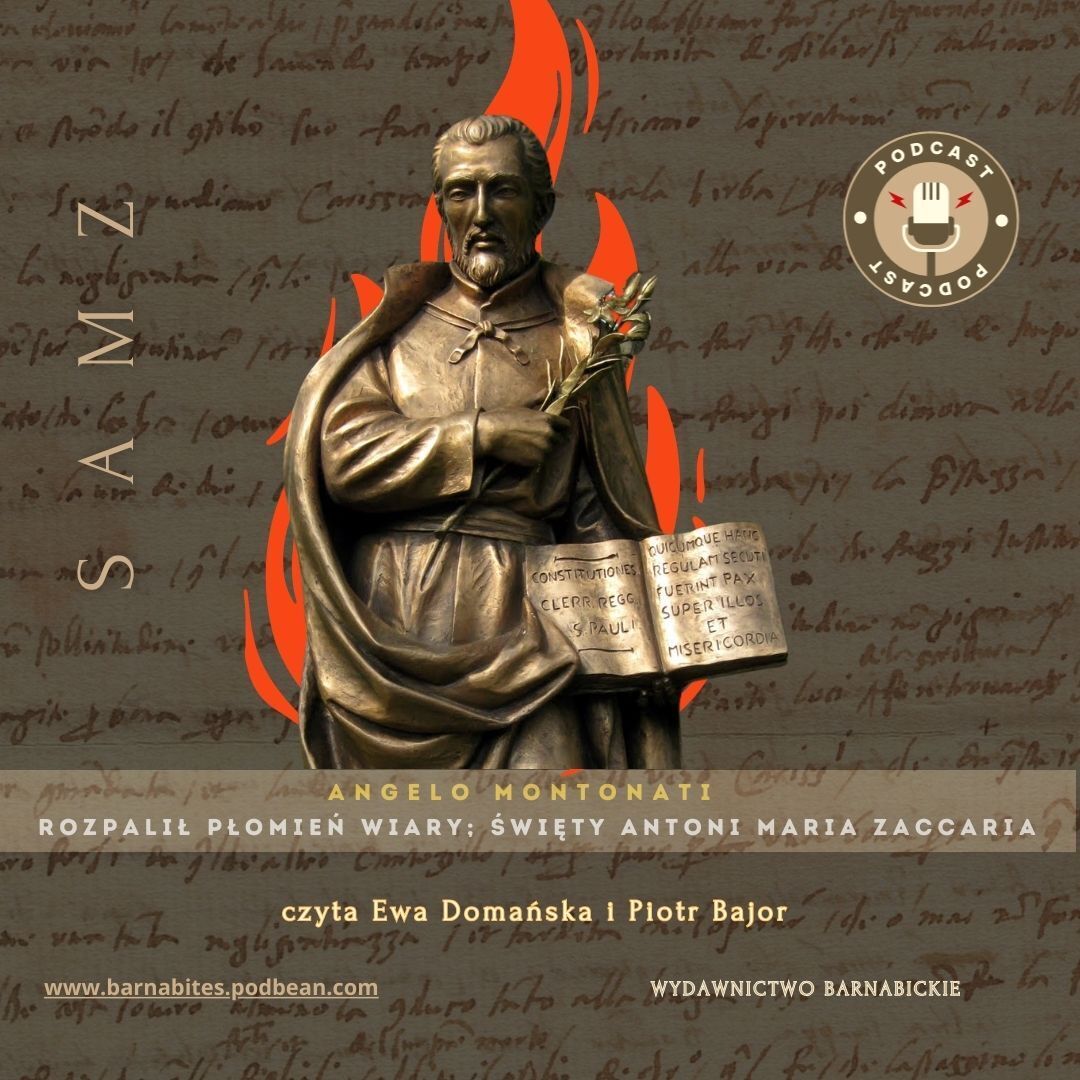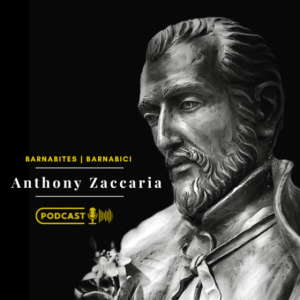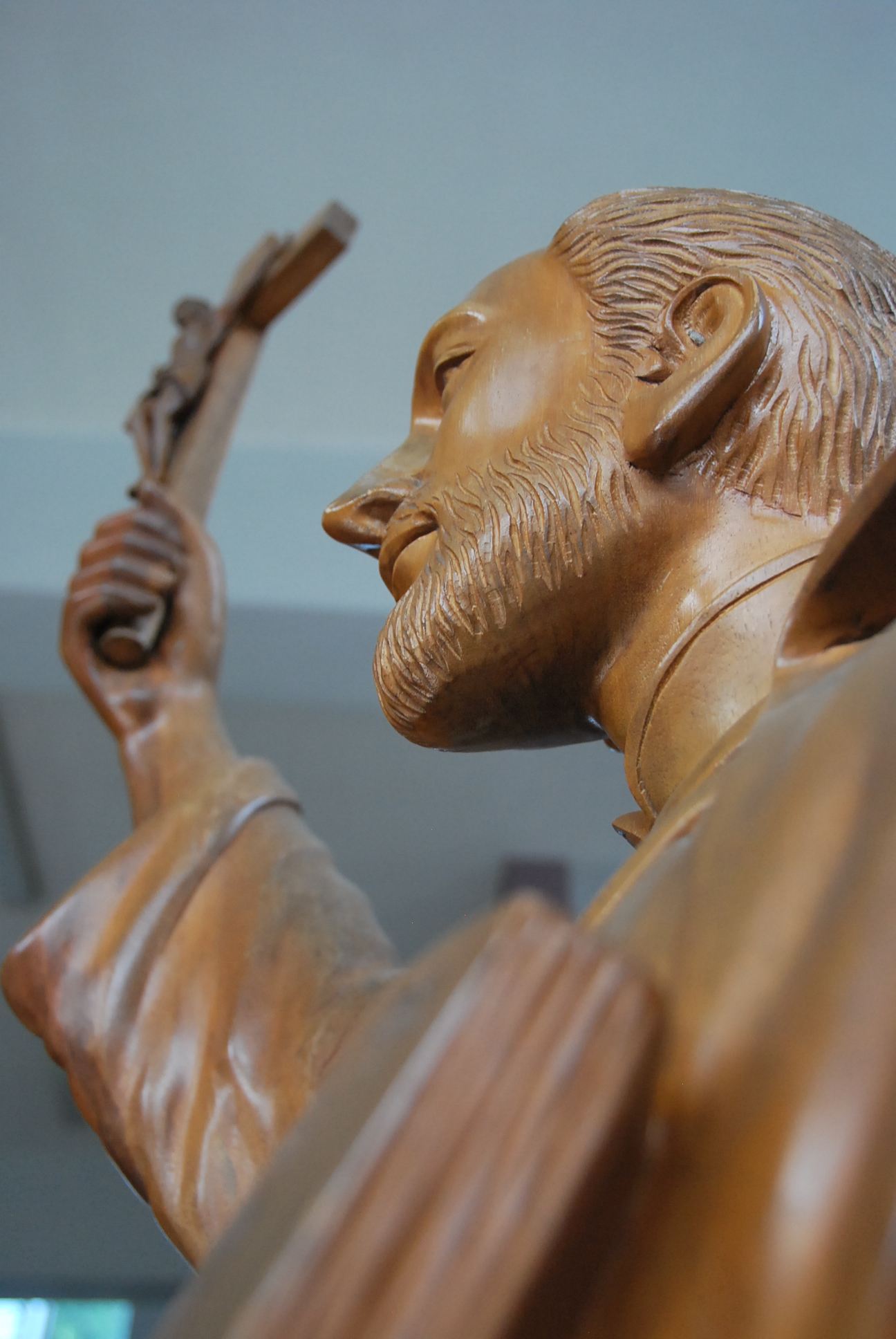Letter - 9 - The Saints, True Imitators of Christ
Guastalla, June 10, 1539
MY ONE AND ONLY BELOVED MOTHER AND MY OBEDIENT DAUGHTERS IN CHRIST, GREETINGS.
Tomorrow we celebrate the Memorial of St. Barnabas, the companion of our common patron, the chaste Paul. I can’t help taking this occasion to use, in dealing with you, the same approach that Barnabas used in dealing with the great Paul who wanted to be a living example of the suffering Christ in reality as well as in everyone’s estimation.
You must know, of course, how St. Paul, just after his conversion, went for the first time to Jerusalem. He tried every possible way to mingle with the other Christians in order to get acquainted with them and to be acknowledged by them as a Christian; but they were afraid and suspicious of him as though he were still the same persecutor, and so they dared not keep his company.
That was when Barnabas, leading Paul by the hand, presented him to the Apostles and told them: “Here he is, the one who was, etc.; and then Christ appeared to him, etc.; and he did this and that, etc.”150 By presenting Paul in person this way, Barnabas made him known to all and showed him as a pillar of the Church and the one who had almost attained the first place in the apostolic mission. All the while Paul was keeping secret his own merits, and at the same time he was drinking great draughts of self-satisfaction, unafraid of savoring his own exceedingly sweet praises.
Likewise, dear Mother, if it pleases you, I would like to show you how freely great saints behave. Yes, I would like to make you see that what in them, because of their lofty perfection, is an experience and a sure sign of a consummated holiness, can become in us, instead, an occasion of certain ruin or a sure sign of not having eliminated our first and inveterate bad habits, as is apparent in the story told by St. John Climacus about a certain saint who felt so sure of being totally free of gluttony that he tempted the devil with a bunch of grapes to see if the latter would in turn tempt him in the same way.151 The other case is that of someone who wants to know for certain to what extent a certain passion is suppressed in himself or in others. He first arouses that passion by words, gestures, and the like, then, observing the matter very closely, waits for the results, and from them he deduces both his own and other people’s interior state.
I will not mention here certain things that only you can understand, but rather those which also our Angelics can grasp, leaving those other things for your spirit to ponder.
Barnabas says: “Behold Saul,” that is, the very countenance of our sinful old Man—the mirror of our first evil inclinations or passions.
Look, I say, at the idle talk of this or that would-be saint: she chatters endlessly like a finch or a monkey; she is seldom seen at prayer, always involved, as she is, in external occupations; she enjoys sleeping a lot, even lying abed lazily. Is this not the face of Saul, that is, the picture of our sinful old Man?
But this is nothing yet. She wants to be served; she keeps her cell well equipped with comforts and elegance; she always speaks in a reproachful mood; she is never ready to say a comforting word to anybody; she shows that she holds nobody in esteem. Well, what do you think all these attitudes mean, but that the bad habits of the old self are still laying hold of her?
Moreover, she is never satisfied; she is always under the siege of temptation, and her spiritual knowledge is always cloudy and doubtful. In a word: she gives clear signs of being the same person as she was when living in plain clothes, or, at least, of being still imperfect or very little changed.
Her stomach relishes only the best of everything. What else does that prove, but that she is a first rate glutton? She can hardly wait without showing anger on her face; she cannot keep herself kneeling without leaning on the edge of the seat; she is so sensitive to everything around her that her blood pressure goes up easily. What else does all this reveal but a great moral feebleness?
And see for yourselves if this is not so: she gets easily tired; she suffers headaches when she has to sit at the grate; she cannot bear the troubles of her neighbor. [In this description] one can see everything except the portrait of a mature person.
All this is Saul—namely, the portrait of the imperfect person. “But keep quiet,” says Barnabas, “don’t forget that to a person, like the one just described Christ appeared, etc...” If you pay attention, you will find hidden that this person is a saint interiorly and exteriorly. If you take the trouble to understand her every aspect, as I lay open this poor creature, I am quite sure she will blush and lower her head to conceal her real self.
But see whether, when she speaks, she is not touching and inflaming you deeply; when she speaks seeming nonsense, she is actually fully aware of your situation and works on it accordingly; see whether in her constant restlessness she doesn’t achieve something new for herself and for others; see whether, when she leaves you, she never omits an edifying word or unspoken sign or gesture; see whether in her seeming absent-mindedness she is actually fully aware of your every move and inspires you with good thoughts and stimulating suggestions.
Now, keep perfectly quiet, for I have something else to show you. When she misses the time for prayer, just then she manifests her rich interior life. When you see her upset and in pain, as if anxious to learn something from untutored people, she is only showing self-contempt and a willingness to appear unlearned. When you see her elegantly arranging her cell, she is actually trying to be an object of ridicule and wishes to hide the consolations received from Jesus Crucified as well as the instructions imparted by St. Paul. With one and the same word she brings both death and life; in one swoop she inflicts wounds and heals them.152
Enough. Anyone willing to examine carefully her actions will indeed recognize in her Saul’s portrait, but Barnabas will assure us that she is not what she appears to be now, and what she appeared to be in the past.
My dear Mother, I could go on and on, but I would not like to arouse bad feelings against me. Besides, you can tell them the rest.
The only thing I wish to add is this: tell the Angelics not to take such liberties. I can assure them that they would achieve results quite opposite to those obtained by that person, and, instead of making great strides in perfection, they would perhaps descend deep down into the hell of absolute imperfection.
Therefore, not idle talk, but a strict silence is expedient and necessary for them. Acting, talking, and thinking without interior and exterior control is unbecoming and unprofitable to them. Failure to renounce themselves while following their own whims could poison them to death since their wishes are worldly. Were they in a position of authority, they would grow presumptuous; were they knowledgeable, they would become proud; were their spirit dissipated, they would become slack; were they unwilling to renounce their will, even in good things, they would not only become coarse but would entirely disaffect themselves from Paul and his way of life.
Do reflect and see what a great harm is caused by seeking one’s comfort, by drinking [and eating] with pleasure, if not so much wine and exquisite food, at least maudlin sentimentality and self-complacency. If they are not blind, what I have just said will show them how much spiritual harm will come about.
In conclusion, tell them that this Paul preaches to them a Christ Crucified under every aspect: crucified not only in His own body, but in theirs, too—and entreat them to chew well this one word. If, because of their obtuseness, they do not quite understand it, ask my teacher Paola153 to make it clear to them; for I am sure that that tongue so inflamed and so sharp will supply what I would tell them.
That’s it, dear Mother.
[Guastalla], June 10, 1539.
Your Father and son,
Anthony Mary, Priest
REFLECTIONS
We display false humility when, while belittling ourselves in public, we hold in our heart a great opinion of ourselves which becomes manifest when others belittle us.
Persons who are truly holy sometimes strive to appear imperfect in order not to be praised by people. They use ways and methods proper of sinners, but these are only expedients to hide true holiness.
In all of us who are truly imperfect those ways and methods are not expedients but rather real defects. Even though we may try to pass them as expedients we have purposely created to appear humble, they remain outright vices.
Idle talk, lack of perseverance in prayer, and laziness are real defects, not pretenses.
And when, feigning illness or inability, we demand to be served, get angry if we are not treated as we would like, and are never satisfied with what we receive, we show ourselves to be not only imperfect but even reprehensible.
Habitual discontent with the meals that are served, good as they may be, anger, impatience, refusal to kneel on the pretext of infirmity are all signs of lukewarmness and rejection of the cross.
We need to limit idle talk, practice internal and external obedience, die to ourselves, deny our ego, and think little of those positions that could excessively increase our self-esteem and drag us into self-flattery.
We are called to crucify our own selfishness and imitate Christ Crucified who humbled himself to the point of death, even death on a cross.
QUESTIONS
Do I at times display a seeming humility in order to be valued as simple and modest?
Am I able to hide and keep my good deeds unknown so that I will not be praised for them, for after all they are a gift from God?
Do I at times pass as harm sustained real faults, human limitations, illnesses caused by bad habits, all things of which I profess to be innocent even though I am not?
Can it also happen that words, useless talk, erratic prayer habits, lack of commitment, are made believe to be things we end up doing just because we need to vent our feelings, or because we are weak, frustrated, tried by the ups and downs of life, crushed by the serious difficulties we encounter, when in reality they are simply signs of spiritual indolence?
Do I sometimes argue that I deserve better meals due to what I do and loose my temper if I am not pleased?
Do I lessen my commitment to prayer when I am tired?
Do I find it hard to obey and submit to others?
FOOTNOTES
141. See Letter I, Introduction.
142. See n. 59.
143. See Gabuzio 87; Premoli, Storia 117–118; Giuseppe M. Cagni, “Negri o Besozzi?” Barnabiti Studi 9 (1989) 182. For details on Paola Antonia’s charismatic role among the first generation of Barnabites, see Massimo Firpo, “Paola Antonia Negri da ‘Divina Madre Maestra” a ‘spirito diabolico’,” Barnabiti Studi 7 (1990) 23, 26–35. On Besozzi see n. 181.
144. Sergio Pagano, “I processi di beatificazione e canonizzazione di S. Antonia Maria Zaccaria (1802–1897),” Quarderni di Vita Barnabitica 10 (1997) 47. Giuseppe M. Cagni, “Gaetano Bugati e le’ Attestationi’ del Padre Battista Soresina: un importante recuperato alla storiografia barnabitica,” Barnabiti Studi 11 (1994) 38, n. 130.
145. See Pagano 48.
146. See Cagni, “Negri o Besozzi?” 182.
147. For an extensive discussion of this viewpoint see Firpo, “Paola Antonia.” 35–66.
148. See Pagano 50–52, 54. According to Pagano the interpretation of this letter is still an open question and is not small matter: On the threshold of death, was Anthony Mary still giving full credit to Paola Antonia or was he wisely distancing himself from her?
149. According to Cagni, “Negri o Besozzi?” 183, this letter directed to “my one and only beloved Mother (Paola Antonia Negri) and my obedient daughters in Christ (her novices)” was a “conference letter.” This kind of letter would replace an actual conference held on the eve of a liturgical feast. These conferences were a well-established tradition dating back to the days of the Oratory of Eternal Wisdom. (see Letter II, Introduction), or maybe even to the “Amicizia” in Cremona (see n. 44).
150. Acts 9:26–27.
151. Apparently quoted from memory, Anthony Mary’s version of the story is basically the same as one found in St. John Climacus’ The Ladder of Divine Ascent (New York: Paulist 1982, p. 249).
152. Dt 32:39.
153. Most likely Ludovica (Paola) Torelli. See n. 12.







